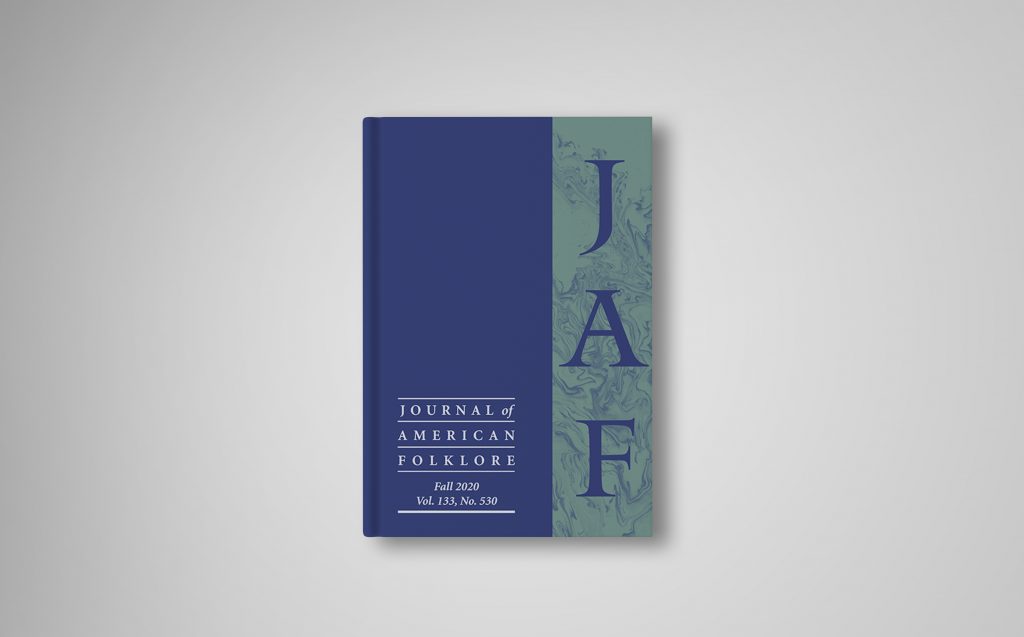
In tandem with the 2020 American Folklore Society Virtual Annual Meeting, the University of Illinois Press asked Dr. Alex E. Chávez, an Assistant Professor of Anthropology at the University of Notre Dame, about recent increases in anti-Mexicanism. We wanted to highlight his upcoming article in the Journal of American Folklore that is relevant to the current national discourse on racism. You will find excerpts below; Dr. Chávez’ full article will be available on JSTOR in the January issue.
Q:Can you talk about how ethno-nationalism and anti-Mexicanism evolved in the past 20 years? Also, can you expand on how you have seen that change since the Trump administration began?
A: My reference to white ethno-nationalism in this article overlaps with what Hugh Gusterson (2017) identifies as “nationalist populism,” which he admits expresses contiguity with what Stuart Hall (1980) and Nicolette Makovicky’s (2013) call “authoritarian populism”. Gusterson suggests these and other similar terms in reference to right-wing populist movements describe ideologies that express: (1) mistrust in government institutions; (2) anti-globalist and anti-cosmopolitan sentiments; (3) claims to represent working-class interests; and (4) animosity toward immigrants and ethnic others. This latter designation is of particular relevance. For although white working-class voters may have learned to become ethnic within the current multicultural climate as a way of petitioning the state amidst their displacement within the highly stratified neoliberal economic order over the past four decades, we cannot confuse this mitigating strategy as an expression of ethnic or racial solidarity with minoritized others. Doing so ignores the well-documented white rage and resentment among this voting demographic, which, as Carol Anderson suggests, has relied upon “a narrative of white legitimate grievance, a sense of being wronged by the presence of blacks, Latinos, and Asians in positions that had once been whites only” (2017). And so, this text asserts that the ubiquity of racial thinking is necessary in the political project of white supremacy in the 21st century, particularly as it pertains to ethnic-Mexicans. Indeed, racism, xenophobia, settler colonialism, and nationalism certainly always rely on gender to attain ideological legitimacy. Anti-Mexicanism is not unique in this regard. However, it is the case that this trope has powerfully shaped the landscape of contemporary politics of race, citizenship, and white violence in the United States as an important component of white ethno-nationalist rhetoric and its murderous consequences in the Trump era.
Q: Negative rhetoric has always been present towards women and other ethnic groups, but how has the current leadership fueled the sentiments?
A: There is certainly an intensification at present with respect to hateful rhetoric targeting women and minoritized groups. Yet, this moment—however unique or not it may be—is nevertheless, to your point, part of a much broader pattern. Thus, in view of its pervasiveness in the current American political landscape, I offer a rhetorical analysis of President Donald Trump’s political speech concerning ethnic-Mexicans as an exemplar of the anti-Mexicanist trope’s broader sociological purchase—that is, its powerful vernacularity over time. Trump’s way of speaking, I demonstrate, is part of a much larger and long-standing rhetorical project, or a well-worn genre in US-American racial talk, evincing a deep-seated discursive enterprise that has produced “the Mexican” in the American racial imagination. This continued project requires a labor of linguistic specificity, one salient aspect of which ascribes ethnic-Mexicans unruly gender identities in contradistinction to ordered and disciplined forms of North American white masculinity and white womanhood. These logics have ultimately braced the intensified material implementation of white supremacy at the level of everyday violence and institutional politics, which are made possible by that very set of discourses. One need only make further note of contemporary efforts to crack down on sanctuary cities and incarcerate migrant children in detention camps; deploy troops to the US-Mexico border in response to panic about invading migrant caravans; shut down government to extract policy concessions around building a border wall; and most certainly refuse to respond to the public health needs of brown and black communities amidst the spread of COVID-19.
Q: Can you briefly describe your emphasis of “masculinity” in the article?
A: Existing anthropological work offers nuanced cultural perspectives on ethnic-Mexican masculinities, so it is not my goal in this article to provide ethnographic data that braces these findings. Rather, I am interested in how Mexican masculinity—as a trope—functions as an elaborate frame whose interpretive work invokes a specific tropic chunk of history that brings typified social types and relations into view. A we know, the rhetorical force of tropes aligns subjectivities, space, and time, in other words, tropes often function as Bakhtinian chronotopes, or optics with which to explore the time-space relational dimensions that contour narrative representations of cultural systems. This perspective is useful in understanding how “Mexican masculinity” becomes charged, how it thickens with the flesh of an exoticized poetics of fear and desire—sentiments that energize the circulation and possessive emotional investment in the figure of the “bad hombre,” for instance: the desire of an exoticized “macho” virility (from beyond American borders) and a fear of the danger such masculinity poses (within the threshold of those borders). And so in this article, my intent is not to account for a culturally-specific experience of Mexican masculinity, but rather to locate the cultural purchase of anti-Mexicanism in relation to a particular form of white heteronormative masculinity central to ethno-nationalism.
